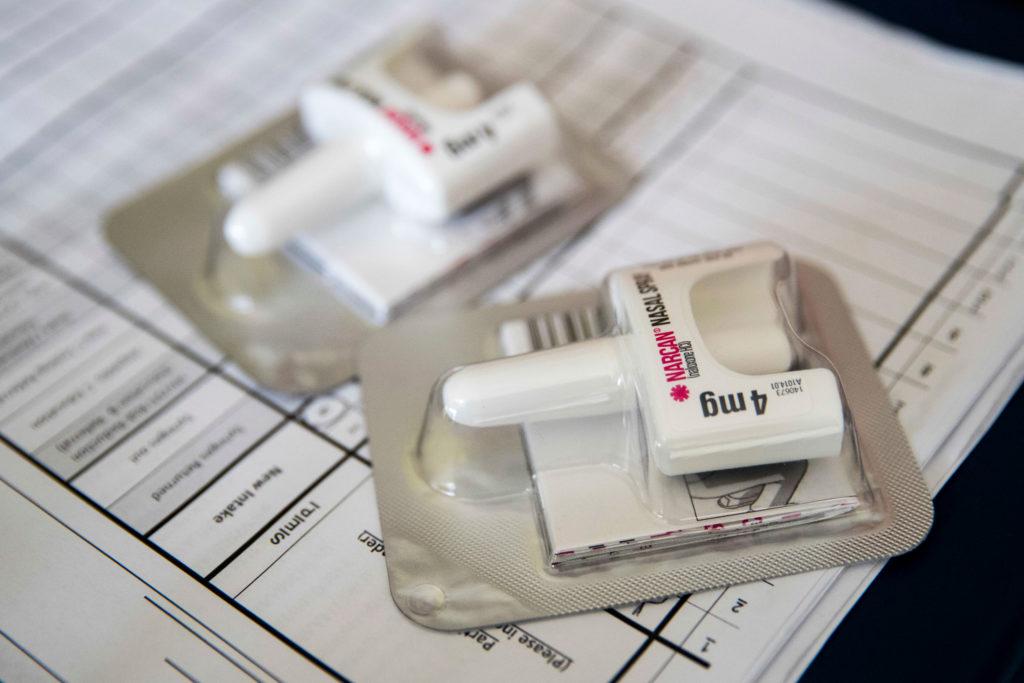
State health leaders want more Coloradans to get involved with fighting the opioid crisis. They want people to bring home naloxone, the life-saving medication that reverses an opioid overdose.
Last year, opioid overdoses claimed 543 lives in Colorado. But those numbers could have been lower, according to Robert Valuck, who spoke to a crowd Thursday from the steps of the state Capitol.
"One of our fellow citizens died from opioid overdose every 16 hours last year, and many of those people could have been saved by naloxone," said Valuck, who heads the Colorado Consortium for Prescription Drug Abuse Prevention.
His group is leading the $320,000 Bring Naloxone Home public awareness campaign, funded by the state. The goal is to spread the use of naloxone beyond medical providers and first responders. The campaign plans to get the word out through print, outdoor, transit, social media and online media.
Sen. Brittany Pettersen, a Democrat from Lakewood, explained she used the medication to help save her mother, who overdosed on heroin many times, and eventually got into recovery.
"Obviously people don't have a chance of recovery and getting the treatment they need and living their fullest life if they're not saved to begin with," Pettersen said. “She would not have had the chance to move toward recovery, even with access to treatment, if first responders didn’t have naloxone, and if I didn’t have naloxone in my home.”
Another speaker, Michael Miller, said it saved his life three times when he was dealing with addiction.

"It was paramedics in all the cases of my overdose reversals. And I would absolutely be gone, if not for naloxone," said Miller, who now works as Opioid Initiatives Coordinator for Jefferson County’s public health department.
Kathleen Hernandez knows how important it is to have it available. She went shopping at a King Soopers in an affluent part of Colorado Springs. A woman in her 20s collapsed at the entrance. Hernandez pulled out a naloxone kit from her purse and sprayed it up the woman's nose.
"I think she would have died. I really do. She quit breathing, the guy she was with was freaking out. He obviously had been through it with her before, but I don't know if she would have survived, I don't think she would have," Hernandez said.
Hernandez works in drug treatment center, as a recovery coordinator for Aspen Pointe, so it's not surprising she carries naloxone. But she says many ordinary citizens don't.
Democratic Rep. Chris Kennedy, of Lakewood, said those using opioids should have the medication nearby. "People who are using recreational pills have naloxone handy, it'll be the best $75 you ever spent," he said.
The cost is often lower than that and often covered by insurance.
U.S. Surgeon General Jerome Adams advises anyone exposed to opioids know how to use naloxone and purchase it to keep it nearby in an emergency. A standing order by the Colorado Department of Public Health and Environment lets any Colorado resident buy the drug at a pharmacy simply by requesting it.
Naloxone has saved 1,122 lives in Colorado since 2017, according to the consortium. Now the goal is to save more.









